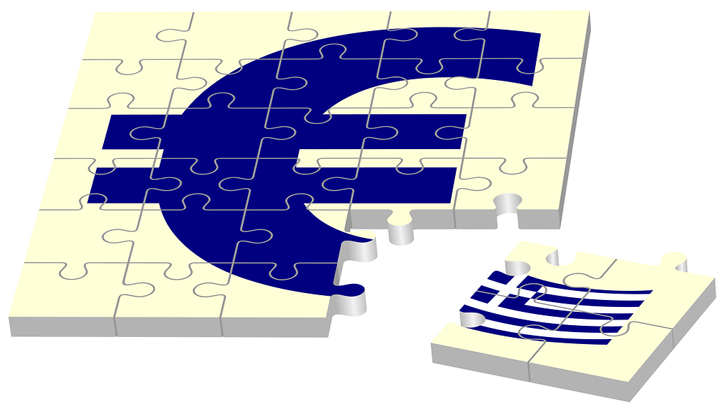Germany benefits off Greek debt crisis
July 21, 2017 | Expert Insights

Since the beginning of the 2009 , Germany has cashed in approximately €1.3 billion due to the Greek financial crisis.
This is a result of the loans it has provided Greece as well as its debt buying programs.
Background
The financial crisis in Greece, called the Greek Depression, occurred in the aftermath of the global economic collapse between 2007 and 2008. The genesis of the problem began 2001 with the introduction of the Euro. It significantly reduced trade costs between Eurozone countries and consequentially Greece’s trade deficit increased. The country was consuming more than it was producing. By 2008-2009, its total deficit was 15%. Major European Union countries like Germany began to withhold money lent to Greece because it was considered “high risk”. As a result, Greece couldn’t finance its debts.
Generally, when faced with such a crisis, countries allow their currency to depreciate to attract investment. Greece couldn’t do that because it remained in the Euro. The unemployment rate rocketed to 25%.
In 2010, the European Commission, European Central Bank (ECB) and International Monetary Fund (IMF) (the Troika) launched a €110 billion bailout to address the problem. However, the crisis has persisted.
Analysis
Initially Eurozone members said they would return interests of loans taken by Greece back to the Greek central bank. This was done in the spirit of EU solidarity. In 2015, the pay-back operation was halted when a second bail-out was rolled out. Germany has refused to re-initiate it since that time.
A European media platform called Euractiv has published a report noting that Germany has profited €1.3 billion on account of interest. Germany has taken a hard - line when it comes to Greece. Having loaned Greece, a substantial amount of money, it has called on the nation to implement large-scale economic reforms. It wants Greece to sign up to credible pension reforms and privatization plans.
Eurozone ministers agreed in June to unlock the latest Euro 8.5 billion tranche of Greece’s bailout to help the country avoid a default on its debt repayments of nearly Euro 7.3 billion
A study by Halle Institute for Economic Research noted that between 2010 and 2015, Germany made interest savings of more than 3% of the GDP. This was attributed to the Greek crisis.
Assessment
Our assessment is that Germany’s actions are legal but they go against principles of solidarity behind the EU. However, Germany could argue that it is pursuing its own national interests having already lent Greece billions of euros. Greece, for its part, is in an undesirable situation. If it withdraws from the Eurozone, then it will have to introduce new currency, which might cause further economic destabilization. Hence, it must implement wide-ranging policies that can completely overhaul its economy.








Comments